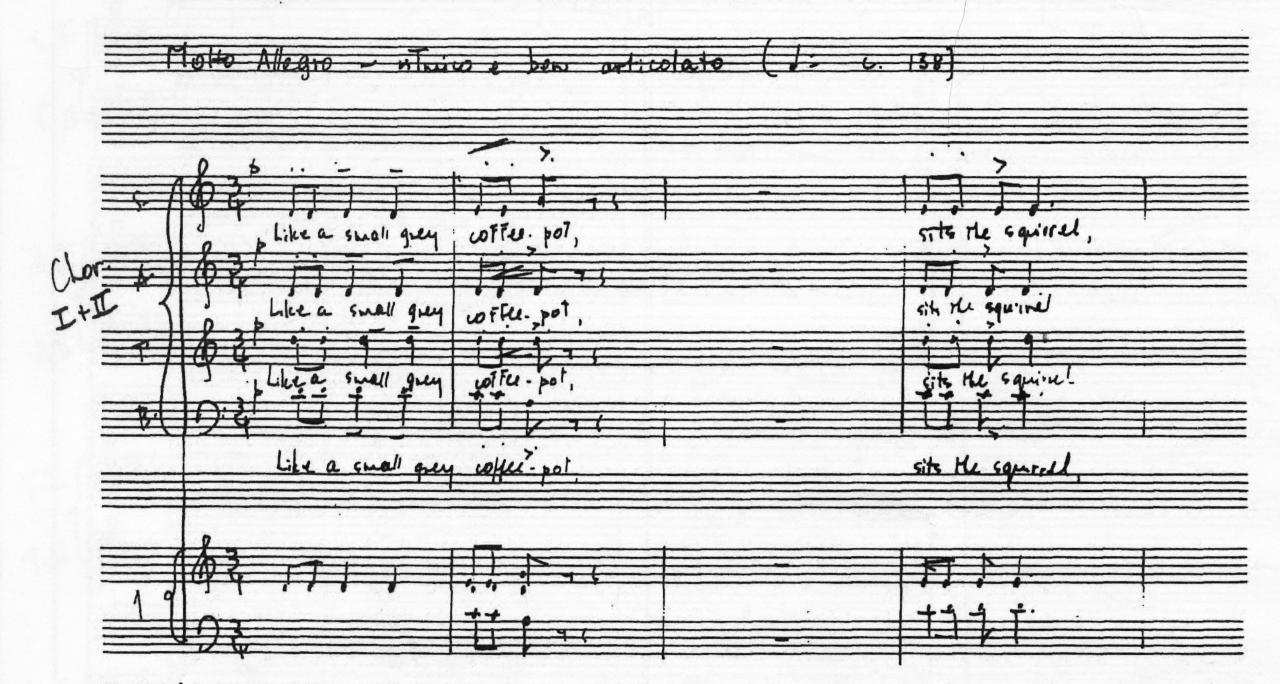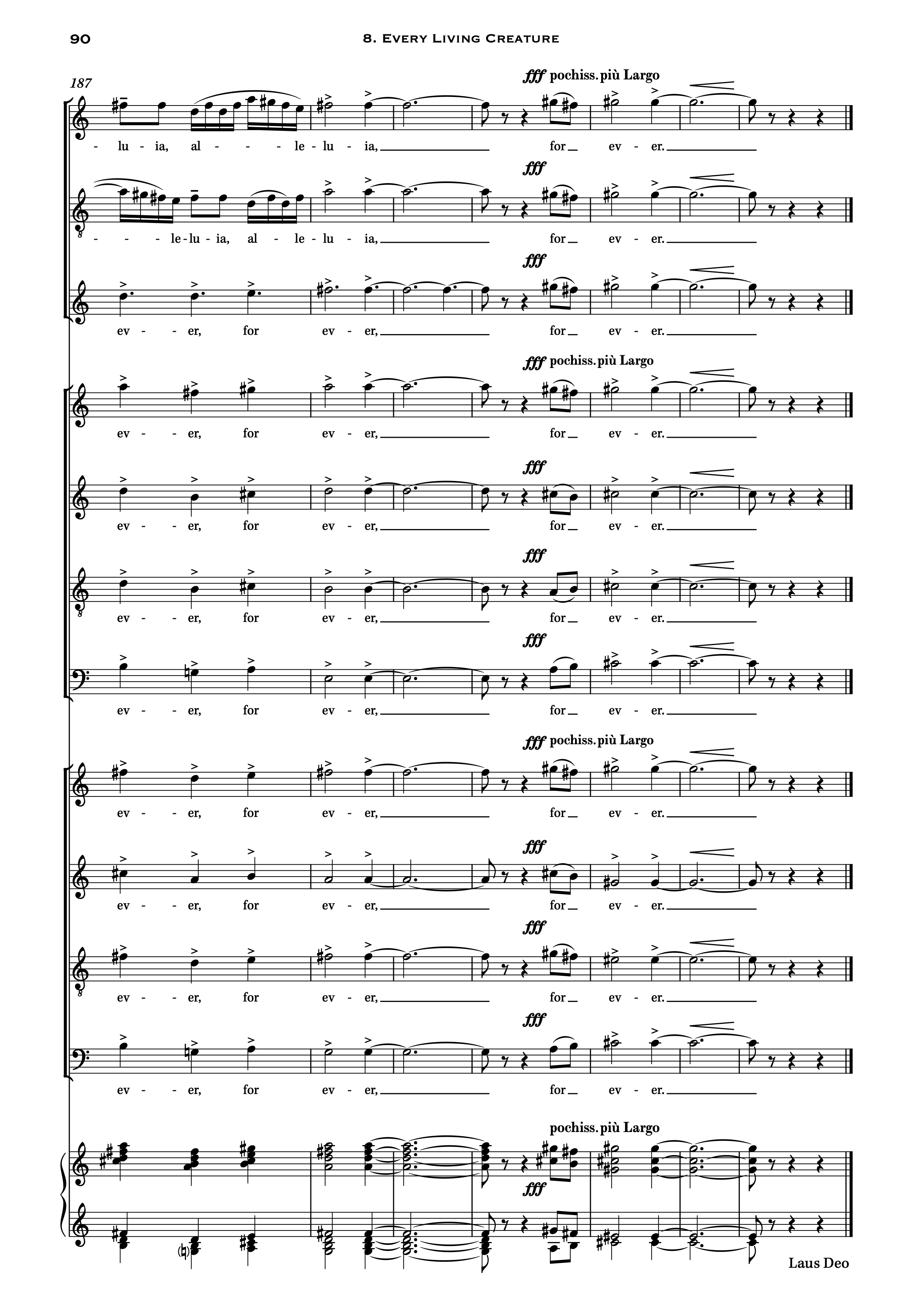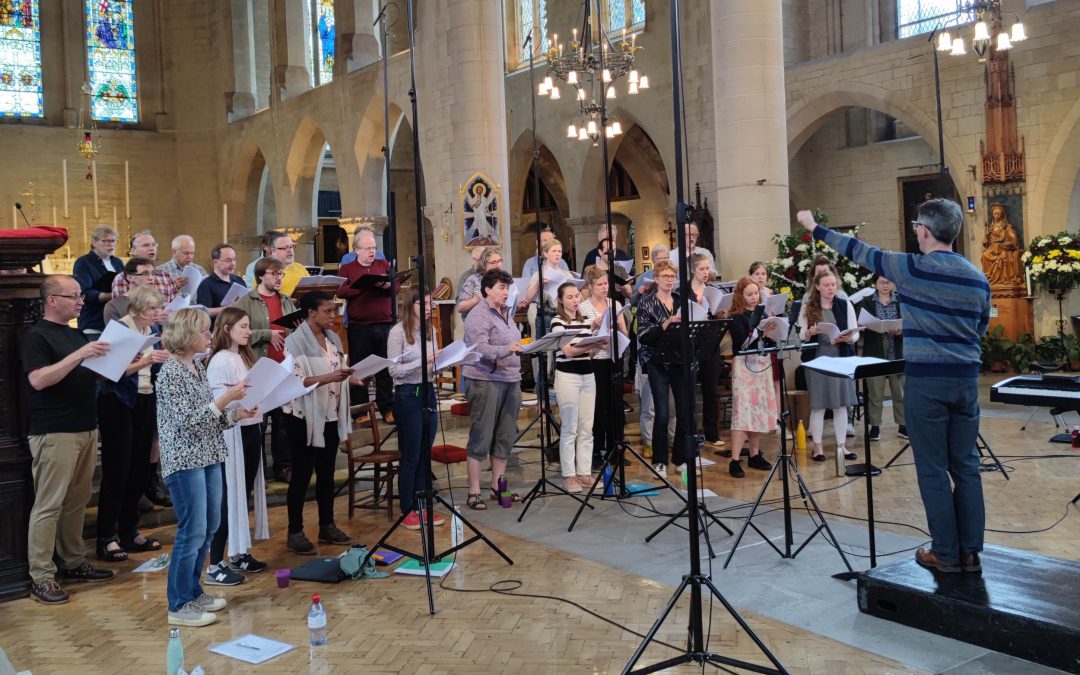This post is part of a series that aims to shine a light on projects in which Dorico has played a part. If you have used Dorico for something interesting and would like to be featured in this series, please let me know.
Many of British composer Kenneth Leighton’s works are well-known and widely recorded, but there are some that have been entirely forgotten and unpublished since their first performance. One such piece is a choral song cycle called Laudes Animantium, which had not been performed since its premiere by the New London Singers in 1973 until 2019, when it was programmed by another London-based choir, Londinium, under the direction of Andrew Griffith. Ben Byram-Wigfield, who sings in Londinium, has prepared a new edition of Laudes Animantium in Dorico, and as Londinium’s new CD of Leighton’s music is released, Ben sat down with me to talk about the work and the recording.
DS: How did you get involved with this project?
BBW: I went to university in Edinburgh the year after Leighton’s death, and his influence on the music scene there, where he was the Reid Professor of Music, was very much still evident. Some years later, I now sing with Londinium, directed by Andrew Griffiths – better known as Head Coach of the National Opera Studio, and for his work with the ensemble Stile Antico. Over the years, we have performed a number of Leighton’s choral works, such as Christmas Carols, motets, and the double-choir Mass (Op. 44). Andrew decided to focus on Leighton for our next recording project, taking the opportunity to perform some of his lesser known works. Laudes Animantium (“Praises of the Creatures”) is an extraordinary cycle of choral music, set to poems by Walt Whitman, William Blake, Alfred, Lord Tennyson, Edward Leah, Joshua Sylvester, Humbert Wolfe and Michael Drayton — all with animals as their theme. It’s a monumental work – 110 pages of manuscript in 8 movements, lasting about 25 minutes, mostly double choir, with virtuosi solos. We performed a concert of Leighton’s works in the Spring of 2019, including Laudes, which we sang from photocopies of his manuscript. It’s fair to say that his hand is not the tidiest. We decided that if we were going to record it, we needed a decent score to read, and I was volunteered for the task.
DS: Among your many musical endeavours, in addition to being a singer, you also run your own publishing house, Ancient Groove Music, which focuses on much older, historical music. How does typesetting Leighton differ from that kind of work?
BBW: Yes, in my day job, I usually spend my time pouring over manuscripts from the 17th and 18th centuries, so this was something of a departure. Leighton is very precise in his use of notation, with liberal use of articulations, dynamics, expressions and tempo instructions. Leighton penned three Christmas Carols in 1948, while an undergraduate; of which only one (Lully, lulla) has been published in a collection with two other carols, written in 1956. We were fortunate to view Leighton’s original manuscripts for the two original carols, Sleep, Holy Babe, and The Seven Joys of Mary, which I also typeset for their premiere recording.

An excerpt from Leighton’s manuscript.
DS: Having sung a fair bit of Leighton’s sacred music, I know his scores are very detailed. How did Dorico help you deal with Leighton’s notational demands?
BBW: I started the work towards the end of 2019 using Dorico 3.0. We originally planned to record the disk in early 2020, but as with so much music-making that year, COVID restrictions made that impossible, and the project was put on ice. Ironically, by the time lockdown had ended, Dorico had gone up to version 4, with several new features that would have been really useful at the outset, such as Manual Staff Visibility changes, Paste Articulations, and Lines. There is much in Leighton’s music that would be painstaking to produce in many notation apps, but Dorico made light work of it. The finale of Laudes has three soloists in open meter above the choir, which frequently divides into two. A single staff of “Boys’ Voices” then has 9/8 against the choir’s 3/4. God knows what the soloists are doing at that point! However, independent meter is bread and butter to Dorico.
Of course, the real killer feature in a work of this kind is Dorico’s unique concepts of Flows: having the whole cycle in one document: each piece as a separate section, with its own automatic title, following on from the previous one — to say nothing of page numbers running consecutively. The choral scoring varies wildly, and separating things into flows really helps to compartmentalize the challenges of each section. It also meant I could tackle the pieces non-sequentially, doing some of the easier sections first. I could also have several different sections at different stages of transcription, without having to worry about how that would affect the layout.

The final page of the work, typeset in Dorico by Ben Byram-Wigfield.
DS: Londinium’s new CD is coming out on 19 May. When were you finally able to record it?
BBW: After COVID restrictions were lifted, we spent months trying to get the choir ‘match fit’ again, and finally, in the hot summer of 2022, we got everyone together with the recording team, and the soloists Rebecca Lea, Nina Bennet, Ciara Hendricks, Nick Pritchard; and the Finchley Children’s Music Group. After the experience of singing from the manuscript, everyone was relieved to have a decent score to read, which they could also mark up easily. I don’t always have the chance to perform my own editions, so it was nice to see it from both sides of the page, so to speak.
DS: Thanks for taking the time to talk to me about this project, Ben!
Every Living Creature is released on 19 May 2023 on SOMM Records. Visit Londinium’s web site to find out about their other recording projects and concerts. Find out more about Ben’s publishing house, Ancient Groove Music.

